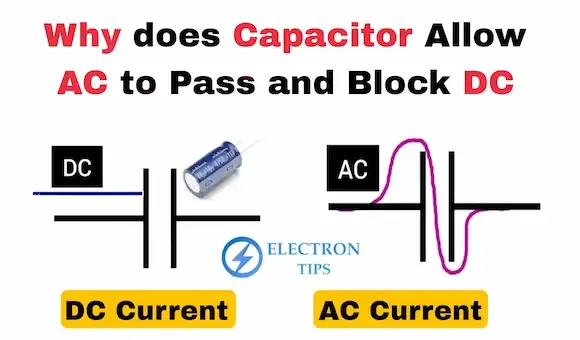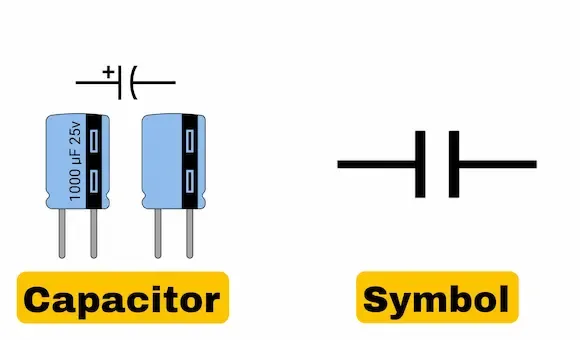 |
| Why does capacitor allow AC to pass and block DC |
Why does capacitor allow AC to pass and block DC? and How
In this brief educational article we will explain to you why the electrical capacitor passes the alternating electrical current and block the Direct Electrical Current, Follow the explanation with us to understand the reason.
First What is the capacitor and how it's works:
The capacitor is an electrical element that can store electrical charges and discharge them, If we look at the inside of the capacitor we will see that it consists of two plates, one that stores positive electrical charges and another that stores negative electrical charges, in addition to an insulator between them.
 |
| Why does capacitor allow AC to pass and block DC |
Why does a capacitor allow alternating current to pass and block direct current to pass through:
As we said above, the capacitor consists of two plates, and when you change the direction of the alternating current, the direction of the current of the charge stored in the capacitor is changed at the same speed, which allows the current to pass easily, unlike direct electric current which does not change its direction. However, in the case of direct current, which does not have change in the direction of the current the capacitor can turn into a barrier to the electric current preventing the flow of current due to the lack of a change in the direction of the current to change the direction of the charge stored in the capacitor.
This is the main reason why the capacitor allows alternating current to pass, where the direction of the current changes regularly, and this is called the frequency (60 Hz in the European Union and 50 Hz in the United States of America), while it prevents the passage of direct current, as there are no changes in the direction of the current.
May also like:
What is a Multimeter | How to use Multimeter device,
IC 555 timer tutorial , Pin diagram, Circuit, working principle ,
What is a RCD breaker | how it's Works ,
Working principle of Raspberry Pi device .
What is Triac component, symbol structure,
